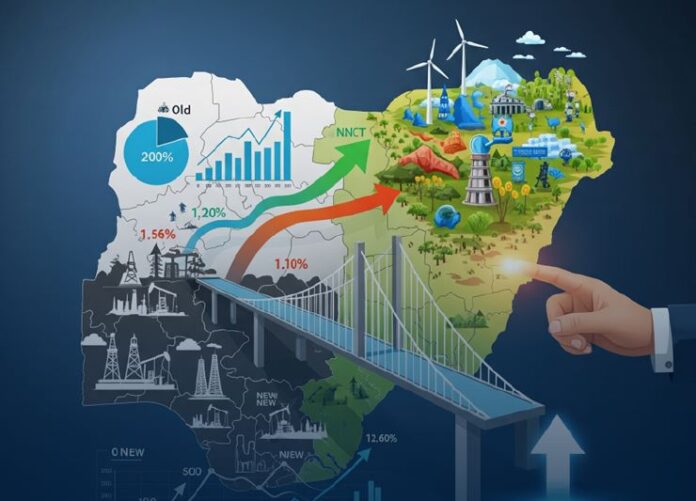Nigeria’s economy has grown bigger on paper, but the real story is troubling. The Nigerian Economic Summit Group (NESG) says growth is flat, industry is shrinking, and government revenue is dangerously low.
Its new report, Nigeria’s Rebased GDP: Structural Insights and Policy Imperatives, warns that the country’s revenue-to-GDP ratio is just 2.6%.
It also shows how agriculture, though making up 27.8% of GDP, remains stuck in low productivity. Industry has fallen to only 16.7% of GDP, fuelling fears of de-industrialisation.
NDC 3.0: From Weakness to Opportunity
Amid these issues, a new national plan is taking shape. Nigeria’s Third Nationally Determined Contribution (NDC 3.0), led by the National Council on Climate Change (NCCC), seeks to turn crisis into opportunity.
The strategy aims to embed the Circular Economy into the heart of Nigeria’s future. Instead of a niche idea, it becomes a national economic imperative that could reshape how we work, produce, and consume.
At its core is a green industrial renaissance. The vision is bold: leapfrog carbon-heavy models and build a clean, modern industrial base.
The plan points to opportunities in electric vehicle production, solar panel assembly, and recycling systems. Officials believe these efforts can create “between 500,000 and 1 million jobs in the next five years.”
Food, Farming, and Waste-to-Wealth
Agriculture’s resilience, noted in the NESG report, is not enough without transformation. The NDC 3.0 sets its sights on tackling post-harvest losses and scaling up climate-smart farming.
The plan champions waste-to-wealth models, such as biorefineries to turn crop residues into fertilisers and clean energy. New processing hubs and precision irrigation could raise productivity, secure food systems, and uplift rural communities.
But for this to work, the government must also unlock capital. The strategy proposes a green investment facility to de-risk funding, using tools like Sovereign Green Bonds and new Public-Private-Producer Partnerships.
Producers themselves will become investors, “directly responsible for recycling systems their products require.” This shifts the burden from government alone and attracts global financiers seeking credible, bankable green projects.
Jobs, People, and a Just Transition
The heart of the plan is people. With 42.5% of the economy still informal, the NDC 3.0 insists on a Just Transition.
Circular economy initiatives are expected to generate hundreds of thousands of green jobs. By embedding green skills in schools, Nigeria hopes to prepare its youth for tomorrow’s industries.
A successful shift will depend on four pillars: strong political will, strategic finance, modern infrastructure, and mass public buy-in. Agencies like NESREA must enforce rules, while awareness campaigns and vocational training empower citizens to be active players in the green shift.
The NDC 3.0 is now entering its final review, with the NCCC inviting public input. So, the challenge is: will Nigeria seize this chance to turn economic leaks into growth and sustainability? What do you think?Rate, Like 👍, Comment💬, share this article, and join us on our social media handles. You can also Submit your own story to get featured and earn rewards!







